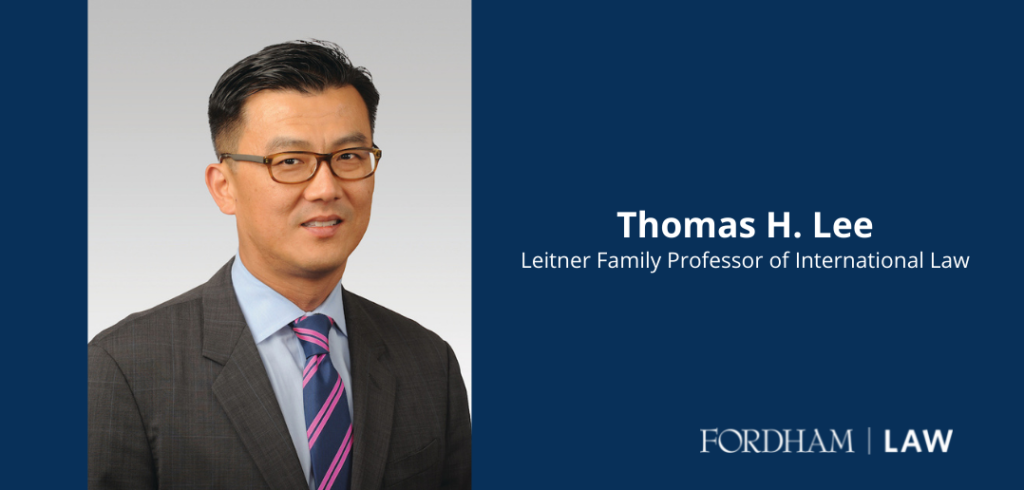An academic article co-authored by the Leitner Family Professor of International Law Thomas H. Lee was shared in a blog post by The Originalism Blog.
John M. Golden (University of Texas at Austin – School of Law) and Thomas H. Lee (Fordham University School of Law) have posted Federalism, Private Rights, and Article III Adjudication (108 Va. L. Rev. (2022 forthcoming)) (52 pages) on SSRN. Here is the abstract:
This Article proposes a new federalism-grounded understanding of the private rights/public rights distinction used by the Supreme Court to assess the extent to which the United States Constitution permits adjudication by a non-Article III federal tribunal. State courts have traditionally been the primary deciders of lawsuits over private rights—historically defined as suits regarding “the liability of one individual to another under the law as defined.” If Congress could limitlessly assign adjudication of private rights cases to federal officials lacking the life tenure and salary protections of Article III judges, the political branches of the federal government would enjoy vastly expanded authority to encroach on state courts’ traditional authority to decide common-law and equity cases between individuals. We argue that such vast congressional power is inconsistent with the limits on federal authority in a constitutional scheme in which Congress’s power of direct taxation and ability to create lower federal courts were hard-won concessions. Article III’s implicit constraints on congressional power to confer private rights cases on non-Article III federal tribunals effectively checks federal power to supplant state-court adjudication by requiring that adjudicative power over such cases go substantially to Article III courts, bodies constitutionally insulated from congressional control. The private rights/public rights distinction thus operationalizes a principle of constitutional federalism through the mechanism of federal-level separation of powers. Article III’s federalism underlay explains the Supreme Court’s special concern with non-Article III adjudication of state-law claims and of questions of “jurisdictional” fact—two doctrinal positions that have puzzled commentators focused on the threat that proliferation of non-Article III tribunals poses to the power of Article III courts, rather than to the power of state courts and local juries.

